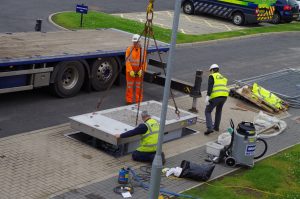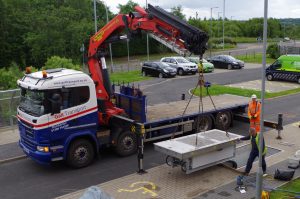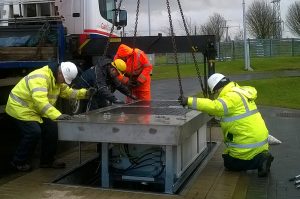The introduction of low emission vehicle technology stimulated the need for a hybrid powered bus, using both a conventional diesel powered engine and an inductively charged battery pack to power on electric drive train. As a consequence, Alexander Denis, British Aerospace, Axeon Power, SSE and the University of Strathclyde’s PNDC received grant funding to build, deploy and test the functionality of this inductively charged Hybrid Bus.
Objectives
To design, build and test a prototype vehicle which could contribute to changing urban public transport in a low carbon, emissions environment.
Method
From a PNDC perspective, the installation of the induction charging facility enabled the following activities to be performed and evaluated.
- Installation of induction charge plate in a standard bus bay
- GPS positioning of bus over induction charging plate and safety system handshaking to enable power charging
- Charge and discharge rates of battery pack
- Low voltage network harmonic measurements and analysis post data collection from charging episodes
Outcome
The pilot project has led to a trial being announced by Transport for London (TfL) using an upgraded extended range diesel hybrid double decker bus. This trial will be commencing in the Autumn of 2015 with Alexander Denis Enviro 400H buses operating on route 69 between Canning Town and Walthamstow bus stations. The buses will receive a charge boost as the bus stands at either end of the route. This project will contribute to the establishment of ultra-low emission zone in central London from 2020.



Results
- 100kW Charger capacity upgrade from 60kW
- LV System Harmonic data collected and analysed
- Air Gap Charging method’s performance evaluated
Jim Fleming, Project Manager
“Testing the hybrid bus at PNDC gave ADL confidence in the continued development of the vehicle.”
